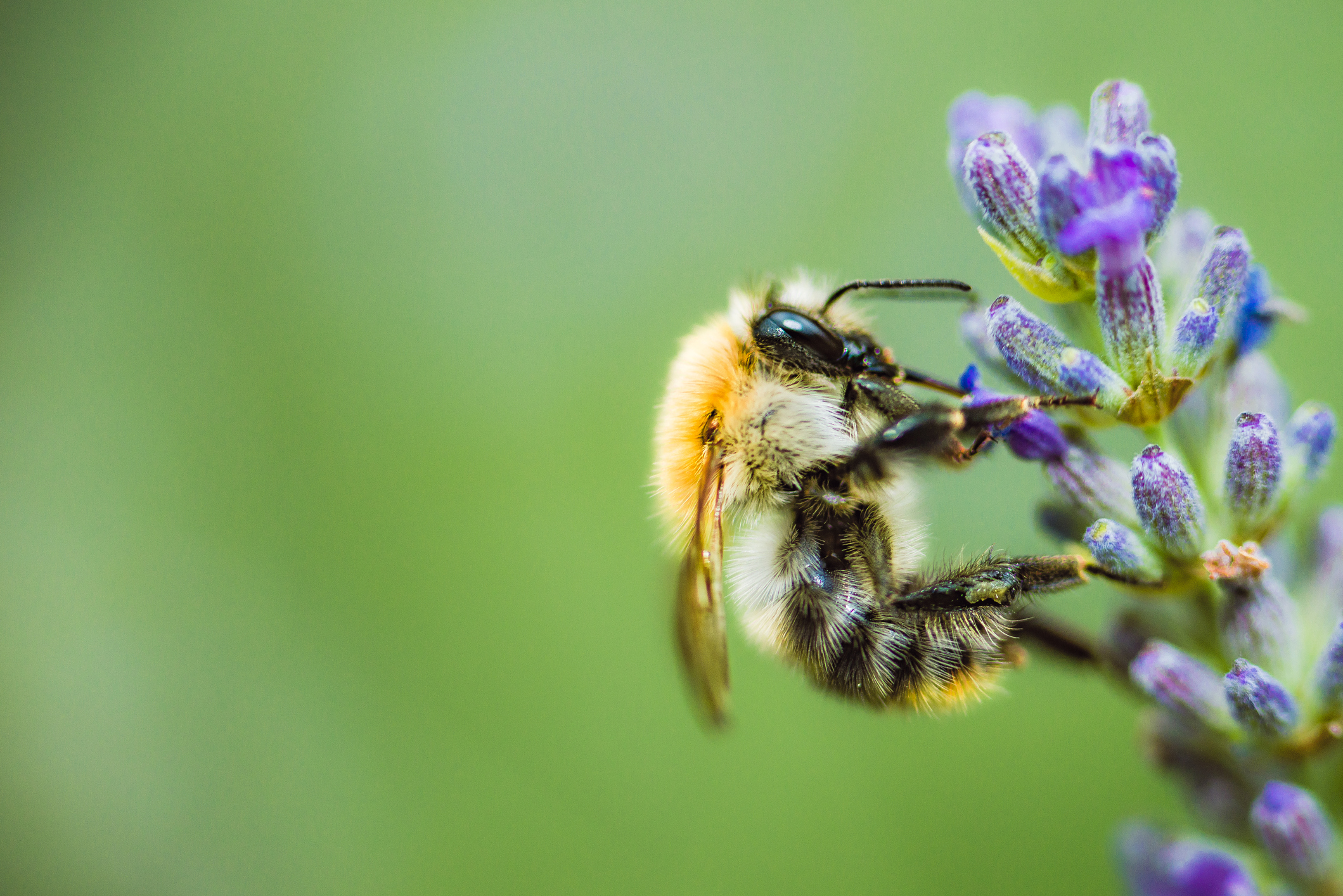The week's good news: November 11, 2021


- 1. Wild honeybees believed to have been wiped out discovered in ancient woodlands
- 2. Ohio coach launches innovative soccer program for kids in Liberia
- 3. Adorable rare leopard cub makes her debut at Santa Barbara Zoo
- 4. 63-year-old college student is 'getting to live the dream' by playing on golf team
- 5. High school runner pushes her brother in his wheelchair during every race
A free daily email with the biggest news stories of the day – and the best features from TheWeek.com
You are now subscribed
Your newsletter sign-up was successful
1. Wild honeybees believed to have been wiped out discovered in ancient woodlands
A bee conservationist made an unexpected discovery in the ancient woodlands surrounding Blenheim Palace in England. Filipe Salbany found hundreds of thousands of rare honeybees that appear to be the last wild descendants of Britain's native honeybee population, The Guardian reports. These bees are smaller, furrier, and darker than their counterparts in managed beehives, and they "live in nests in very small cavities, as bees have for millions of years," Salbany said. In the early 1990s, the varroa mite arrived in Britain and was thought to have wiped out the wild honeybee population, but Salbany said he believes the bees he came across have evolved to survive such threats. DNA samples have been extracted from the bees for testing, with the results expected soon. Salbany said he thinks it's likely there are other spots with hidden wild bee populations, and that's why "we need to protect our ancient woodlands. Because that's where we are likely to find these bees."
2. Ohio coach launches innovative soccer program for kids in Liberia
From thousands of miles away, Eugene Harmon is motivating kids in Liberia to give it their all on the soccer field — and in the classroom. Harmon, 33, is a native of Liberia, and grew up playing soccer with his friends in the streets of the capital, Monrovia. Now an IT specialist living in Columbus, Harmon still adores soccer, and through the game has found a way to stay connected to Liberia. In 2019, he started the Zion Astro Football Academy in the city of Ganta, three hours away from Monrovia. He uses his own money to pay $1,800 a month to rent a soccer field and pay five staffers. About 60 kids between 12 and 15 are part of the club, and it is required that they all stay in school and participate in community service projects. Every Thursday, Harmon delivers motivational pep talks via Zoom. Earlier this year Harmon used most of his life savings to buy six acres of land in Ganta, where he plans to build a school.
The Week
Escape your echo chamber. Get the facts behind the news, plus analysis from multiple perspectives.

Sign up for The Week's Free Newsletters
From our morning news briefing to a weekly Good News Newsletter, get the best of The Week delivered directly to your inbox.
From our morning news briefing to a weekly Good News Newsletter, get the best of The Week delivered directly to your inbox.
3. Adorable rare leopard cub makes her debut at Santa Barbara Zoo
Marta is ready for her closeup. Last Thursday, the rare Amur leopard cub made her first public appearance at the Santa Barbara Zoo. Marta was born in August, weighing just 1 pound, 1 ounce, and has spent the last few months bonding with her mother, Ajax. For her debut, Marta spent about an hour in her outside habitat, with the delighted crowd watching her run, jump, and play. Amur leopards are critically endangered, and it's estimated there are only 100 left in the wild, living in China and Russia. Ajax is "the most genetically valuable female Amur leopard in North America," the Santa Barbara Zoo said in August, and Marta, her first cub, "will contribute valuable genetics to the population." Lorena Muro, a manager at the zoo, told NewsChannel 3-12 Marta's birth was "a huge win," and the team is "just elated."
NBC Los Angeles News Channel 3-12
4. 63-year-old college student is 'getting to live the dream' by playing on golf team
At 62 years old, Debbie Blount decided it was time to pick her clubs back up and join the women's golf team at Reinhardt University. That was a year ago, and now Blount is 63, a sophomore, and a vital member of the team — this fall, she played in the TWU Fall Invitational and was one of three Reinhardt golfers who made all-tournament. "I'm getting to live the dream," she told CNN. "I look around here and I can't believe I get to do it." Blount and her husband Ben enjoyed playing golf, and when he died a few years ago, Blount lost her passion for the sport. Tired of feeling adrift, Blount decided to enroll at Reinhardt, becoming the first person in her family to go to college. She joined the Reinhardt golf team as a walk-on, and player Lauren Welte told CNN Blount has been "incredible" and "hits it the straightest out of all of us."
A free daily email with the biggest news stories of the day – and the best features from TheWeek.com
5. High school runner pushes her brother in his wheelchair during every race
While most high school athletes have their family cheering for them on the sidelines, Susan Bergeman's brother Jeffrey is there every step of the way during her 3.1-mile cross country races. For every practice and meet, Susan, 14, runs while pushing Jeffrey, 15, in his wheelchair. When he was 22 months old, Jeffrey went into sudden cardiac arrest, which led to severe brain damage and a diagnosis of cerebral palsy. It was important to Susan that she find a way to get her brother involved in an activity at their West Salem, Wisconsin, high school, and cross country made sense. "He loves running," she told KARE 11. "I think it helps me get even closer to my brother." When it gets hard running with Jeffrey uphill or over uneven terrain, Susan said she will "push away the pain and focus on him enjoying it," adding that "hearing everyone screaming and cheering gives me a big adrenaline rush."
Catherine Garcia has worked as a senior writer at The Week since 2014. Her writing and reporting have appeared in Entertainment Weekly, The New York Times, Wirecutter, NBC News and "The Book of Jezebel," among others. She's a graduate of the University of Redlands and the Columbia University Graduate School of Journalism.
-
 The ‘ravenous’ demand for Cornish minerals
The ‘ravenous’ demand for Cornish mineralsUnder the Radar Growing need for critical minerals to power tech has intensified ‘appetite’ for lithium, which could be a ‘huge boon’ for local economy
-
 Why are election experts taking Trump’s midterm threats seriously?
Why are election experts taking Trump’s midterm threats seriously?IN THE SPOTLIGHT As the president muses about polling place deployments and a centralized electoral system aimed at one-party control, lawmakers are taking this administration at its word
-
 ‘Restaurateurs have become millionaires’
‘Restaurateurs have become millionaires’Instant Opinion Opinion, comment and editorials of the day
-
 The week's good news: Sept. 21, 2023
The week's good news: Sept. 21, 2023It wasn't all bad!
-
 The week's good news: Sept. 14, 2023
The week's good news: Sept. 14, 2023It wasn't all bad!
-
 The week's good news: Sept. 7, 2023
The week's good news: Sept. 7, 2023feature It wasn't all bad!
-
 Lives transformed by swimming with Newfoundland dogs
Lives transformed by swimming with Newfoundland dogsfeature Good news stories from the past seven days
-
 The week's good news: August 31, 2023
The week's good news: August 31, 2023feature It wasn't all bad!
-
 The week's good news: August 17, 2023
The week's good news: August 17, 2023feature It wasn't all bad!
-
 Earring lost at sea returned to fisherman after 23 years
Earring lost at sea returned to fisherman after 23 yearsfeature Good news stories from the past seven days
-
 Farmer plants 1.2m sunflowers as present for his wife
Farmer plants 1.2m sunflowers as present for his wifefeature Good news stories from the past seven days
